News
LUSM Successfully Held the First Silk Road Human Resource Management Forum
On November the 27th, The First Silk Road Human Resource Management Forum themed “theory construction and research innovation of OBHR” was held on Tencent Living Meeting by LUSM. Professor Wang Zhen from Central University of Finance and Economics, Li Guiquan, researcher from Peking University, Xi Meng, assistant research fellow from Nanjing University, and Tu Yidong, associate professor from Wuhan University gave four wonderful lectures in the field of organizational behavior and human resource management. Over 200 faculty and students from domestic well-known universities such as Peking University, Wuhan University, Nanjing University attended the event.
On the opening ceremony, Professor Wu Jianzu, associate dean of LUSM extended welcome and gratitude to the participants and introduced the basic situation of the school. The ceremony was presided over by Professor Zhang Ruoyong, director of Institute of Service Management, LUSM.
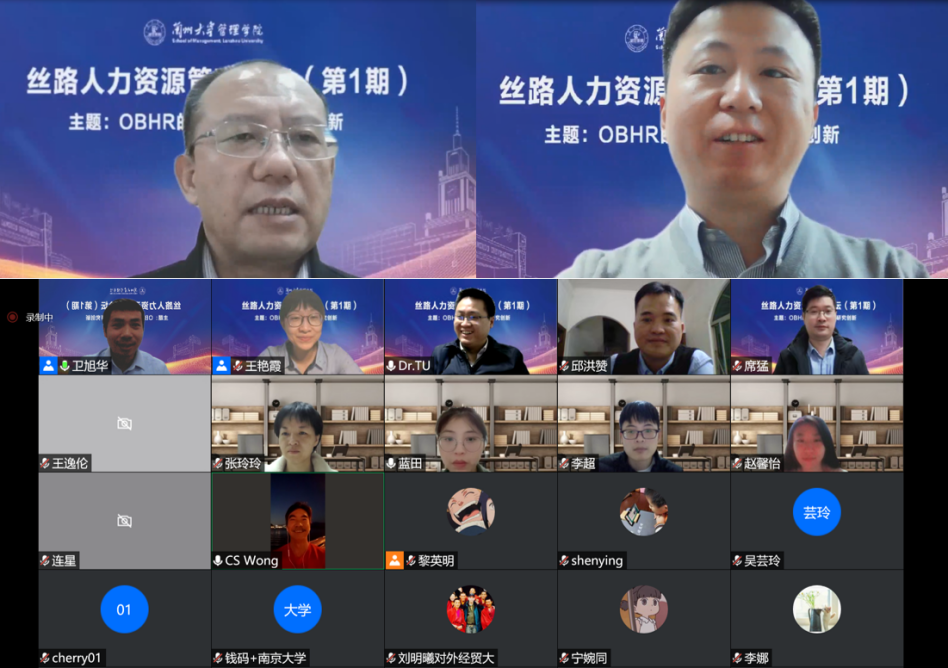
After the ceremony, Prof. Wang Zhen delivered a talk entitled misunderstandings and suggestions on theoretical application of OBHR. He stressed that the correct application of theory is very important for academic research, and introduced "what is theory" and "what is not theory" based on the common problems of theoretical application in OBHR research; summarized six misunderstandings in the theoretical application of "hasn’t use theory", "pretend to use theory", "misuse theory", "splice theory", "partially use theory" and "misinterpret theory", and put forward three suggestions on how to say, use and choose the theory. In his lecture: the road to high quality research of OBHR,Prof. Li Guiquan shared three common problems in scientific research and the main causes and solutions to them. He introduced the definition of high-quality research from the aspects of research methods and theoretical contributions, and puts forward the way of high-quality research exploration of "learning theory and methods well", "investing time and energy" and "using brains".
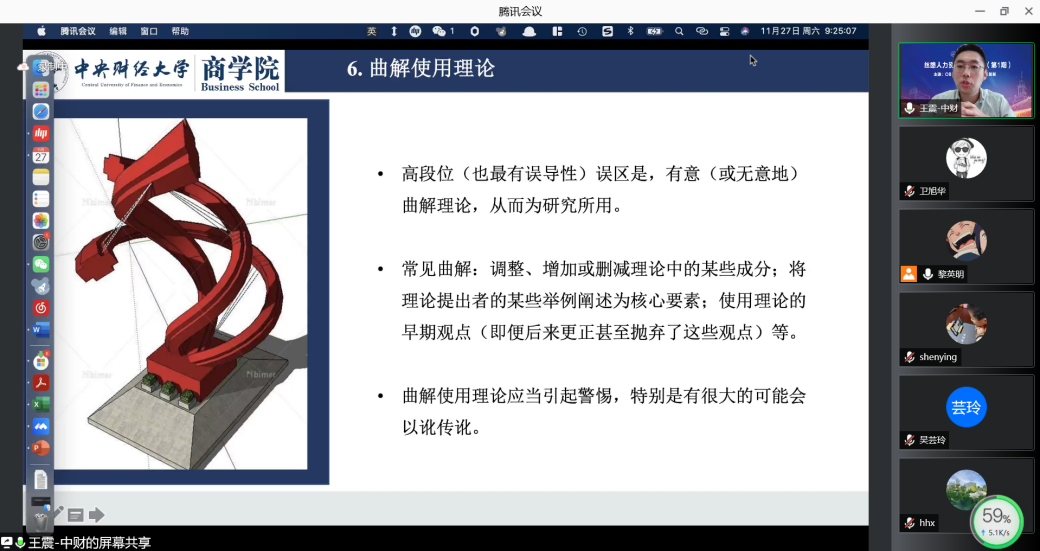
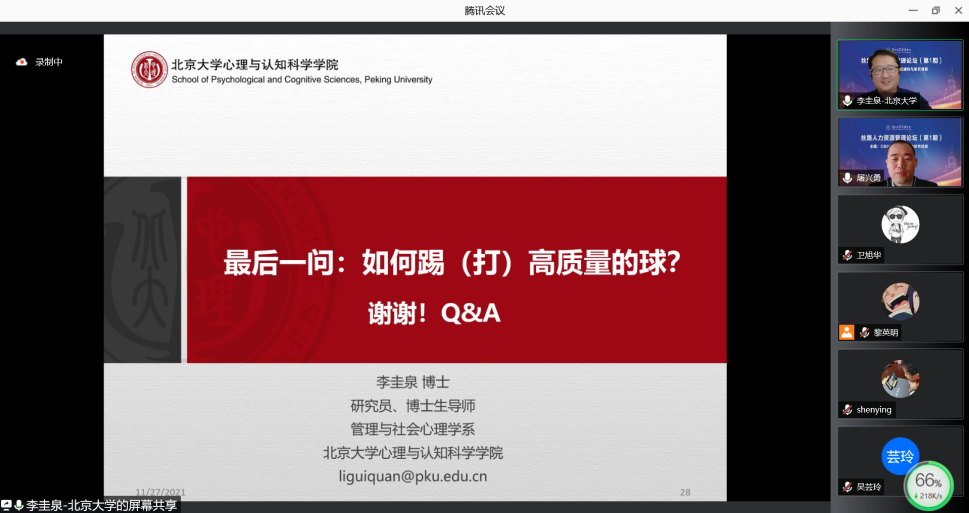
In the afternoon, Mr. Xi Meng and associate professor Tu Yidong shared their thoughts respectively. Through his talk, "all roads lead to Rome: a contingency allocation perspective of human resource management system, organizational context and organizational effectiveness", Mr. Xi introduced the basic concepts and main categories of strategic human resource management. From the perspective of contingency, he used QCA to analyze how human resource management system and organizational environment matching affect employees’ organizational commitment and performance, and put forward effective research suggestions from the aspects of method application and data collection. Prof. Tu’s lecture: fair treatment of floating population: how equal pay and multi-level social exclusion affect the prosocial behavior of Chinese floating population" is about his studies on the influence of salary equality and social exclusion on the prosocial behavior of floating population in China. He found that salary equity will improve the subjective well-being of individuals and further promote their prosocial behavior, and the relationship is stronger when the social exclusion degree of individuals is lower. He proposed that research should focus on topics to tell Chinese stories, based on Chinese management practices, and explain the law of world development. He shared his experience and suggestions on how to select topics, how to build a research model, how to write a paper and how to revise the paper.
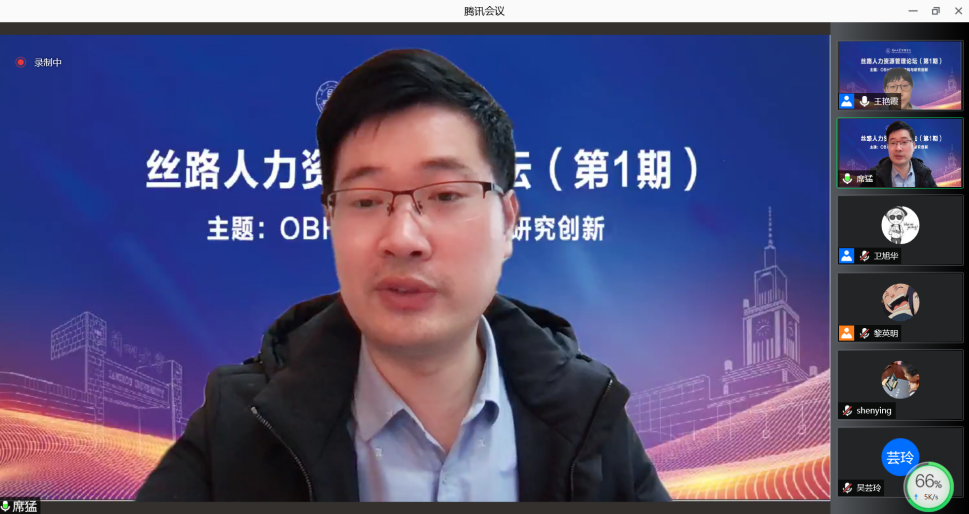
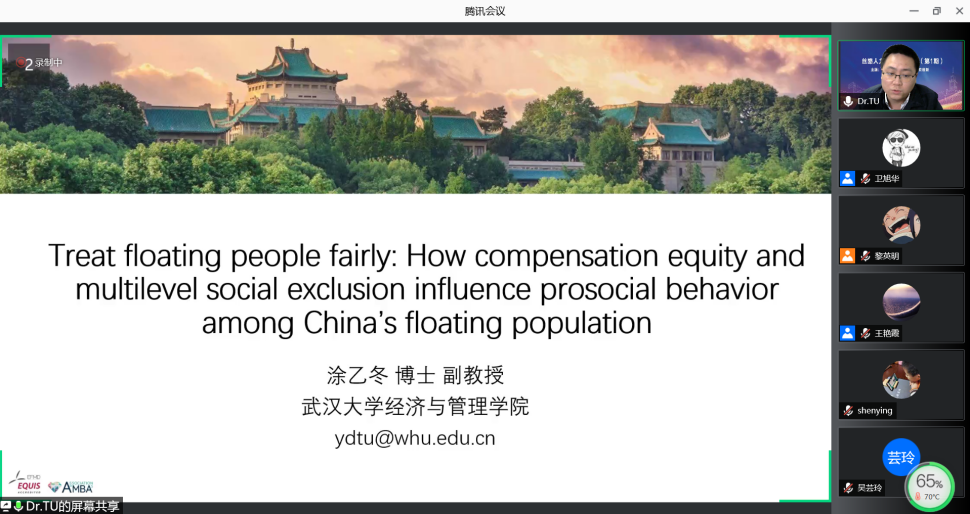
On the closing ceremony, Wong, Chi-sum, chief editor of Asia Pacific Journal of Management (APJM) and professor at The Chinese University of Hong Kong fully affirmed the influence and value of the forum. The forum was concluded by prof. Wei Xuhua.





